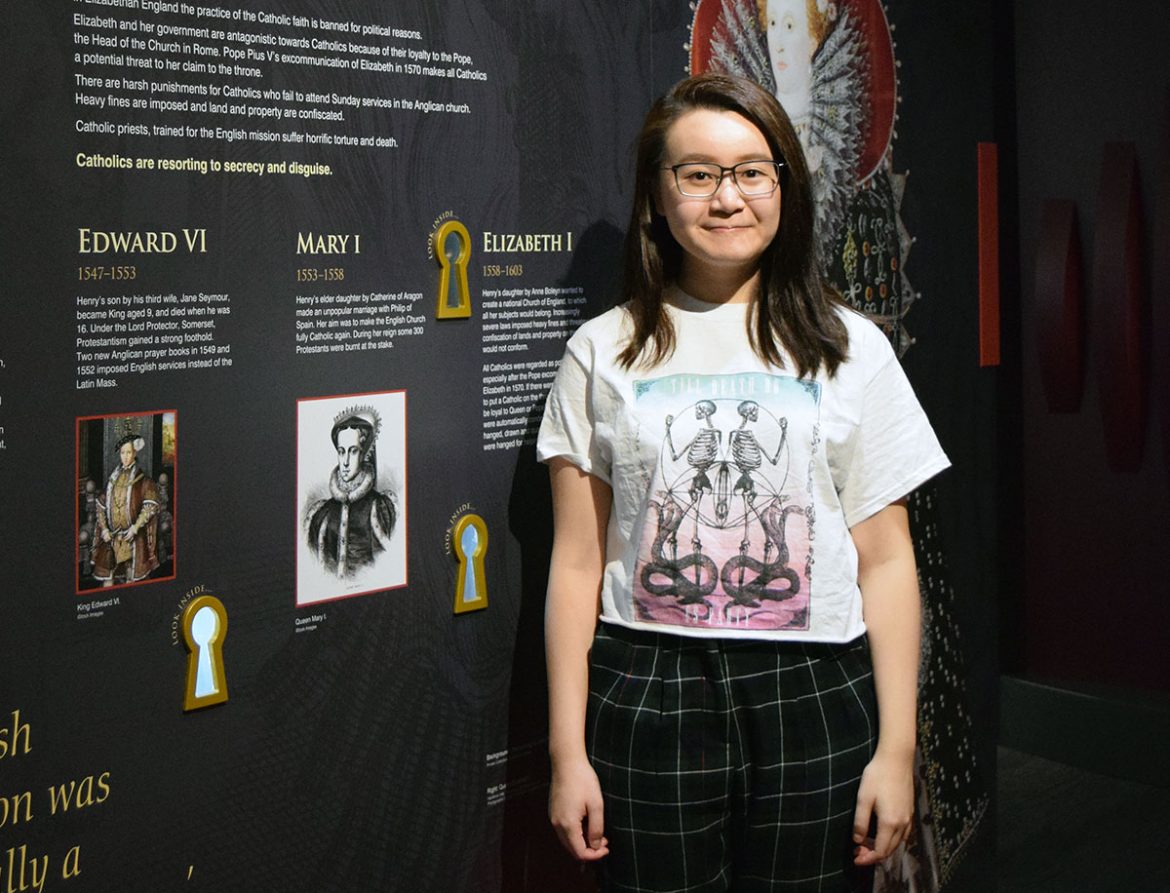Sometimes history can get lost in translation.
The Chinese name for York’s Bar Convent, as previously posted on TripAdvisor, actually meant the sort of bar where you’d go for a drink on a night out.
Any visitors from China rolling up for cocktails and revelry would have been very surprised to find instead England’s oldest living convent, home to an order of nuns rather than an order of drinks.
Although they do sell a rather nice bottle of own-label wine in the gift shop…
But with so many more Chinese tourists coming to York such misunderstandings represent missed opportunities.
Rechristening the convent

“It’s estimated that by 2019 around 200 million Chinese people a year will make trips abroad. We want to attract as many as possible to the Bar Convent,” said Jerry Ibbotson, Audience Development Manager at the convent.
“We have an increasing number of Chinese visitors and we recognised that we need material that is not just translated but also explains our history to an audience that might now have an understanding of European religion and history.”
So the convent turned to Santinia Chan for help. She is a student from Hong Kong studying English at the University of York and was looking for a voluntary position in the city.
Santinia has been translating the Bar Convent experience into Mandarin. And she started with that confusing name.
For Chinese visitors it is now known as The Secret Convent by the Walls.
“If we want to make Chinese visitors feel more welcome – and attract more – then we have to find better ways to communicate with them,” said Jerry.
East meets west

The Bar Convent, founded in 1686 as a school for girls, has an amazing and colourful history.
Told in an interactive exhibition, the story takes in the convent’s secret and dangerous role during the persecution of Catholics at the time of Elizabeth I, and the more modern tragedy of the bombing during the Second World War.
But that posed more than just linguistic problems for Santinia.
“Chinese tourists are extremely familiar with our own culture, which is so different from what the Bar Convent holds,” she said.
“The history of Bar Convent is all about western cultures. All those ideas about Protestants and Catholics are unfamiliar to any Chinese tourists, although still somewhat similar to what we have in the Chinese history.”
A new understanding
Because English and Mandarin are so different, there were problems on the way.
Santinia said: “I remember Jerry trying to fill me in with the differences between nuns and sisters in great detail at one point, but I just ended up telling him we have the same name in Chinese for both.”

As well as simply visiting, more Chinese visitors are choosing to stay at the Bar Convent’s guest house.
Thanks to Santinia’s work they can read about the history in their own language in a specially-produced leaflet.
Jerry said this avoids misunderstandings – previously some Chinese guests had thought the rooms had been named after “the employer”, but they are actually named after saints.
More than that, “it helps visitors to understand who and what we are”.
Top tips

With the huge increase in tourism from China he would certainly encourage other York businesses to do something similar.
Jerry said:
Use a real person and preferably someone who has Chinese as their first language.
The convent also has a second student, Oasis Xu, read through all of the translated material to double check it is OK.
As for Santinia, she feels she has benefited enormously from working at the Bar Convent – and has since landed her first job as a professional translator for a Taiwanese company.
